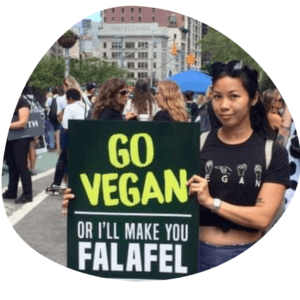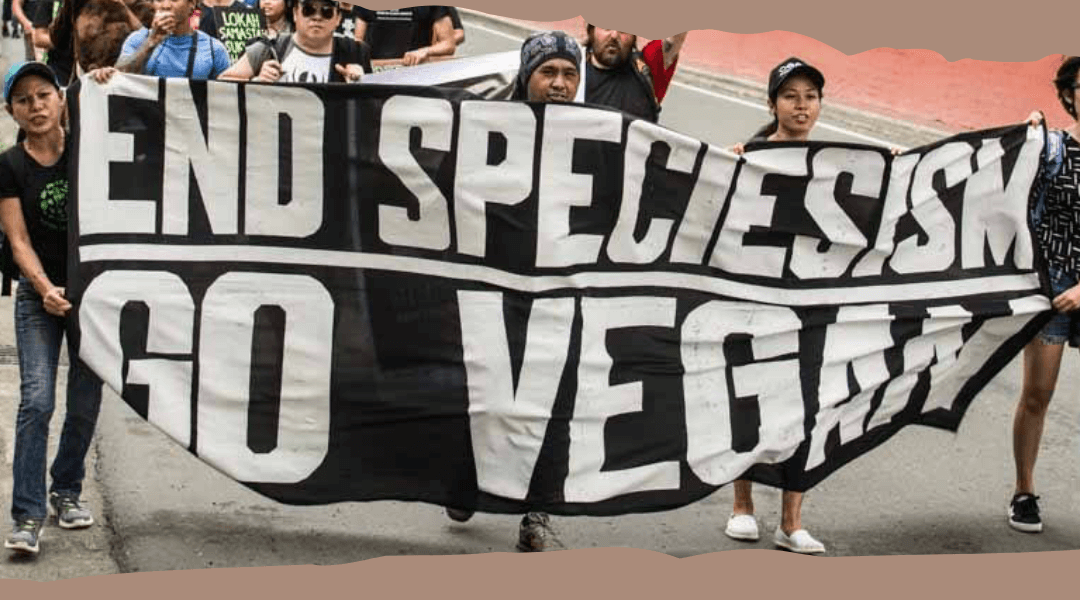DOES COLONIZATION AFFECT FILIPINOS UNTIL TODAY?
By Nancy Siy
From an early age, we are taught in our history classes that the Philippines was “discovered” by Spain, and our country name itself was named after King Philip II. Colonization is such a big part of our history that many of us simply accept it as the norm, as the way things are, without questioning how that continues to harm us and influence the way we perceive ourselves.
This article examines how colonization still persists in modern Filipino culture, particularly through our dietary practices.
Colonization and Food Imports
From the perspective of food consumption, we can conclude that modern widespread animal use is also an effect of colonization. Case in point: iconic Filipino dishes, like lechon, longganisa, and tapa are all meat-centric. And yet, Filipinos had a very different diet during pre-colonial times. While communities living close to the sea also ate fishes and a variety of seafood, and special occasions called for dishes using boars and wild animals, in most other circumstances, Filipinos used vegetables as the main staples in everyday meals.
Decolonizing our food does not mean we remove the influences that are now integrated into our daily lives, but that we begin to re-imagine food by including what is local to us. The recent “Gulay Pa More” vegan festival at the University of the Philippines aimed to highlight this by showcasing indigenous vegetable ingredients. Merchants used taro in their non-dairy milk tea, lemonsillo and tamarillo in their jam, gamet, bougainvillea, palait, macapuno panutsa in their chickn poppers.


Filipinos are considered heavy meat-eaters now. Even within the international vegan community, there is a perception that it’s hard to be vegan in the Philippines. And yet, cows are not native to the Philippines. It was only during the Spanish colonization from 1565 to 1898 that cows were imported and cow flesh (what we commonly call beef) then became a food source. The consumption of animals was further normalized during the American colonization from 1898-1946, when animal flesh and secretions (meat and milk) were positioned as the superior diet and indigenous vegetable dishes were considered unfit for Western standards.
The effect of Western colonization trickles down until today, and here are import statistics that show how our food choices are still influenced by Western ideas:
As of the first half of 2023, the US is the leading source of dairy imports, accounting for 36%.
Spain is the top supplier among EU countries of meat, dairy, eggs, honey, residue and waste from food industries at 22.4% in the first quarter of 2024.
Indigenous Practices vs. Western Animal Use
It’s very interesting that when it comes to critique of animal use, the rituals of indigenous tribes are disproportionately emphasized. There is a stark contrast in how animals used in indigenous traditions are individualized to evoke sympathy, while animals used in Western designs of factory farms are commoditized to encourage invisibility, complicity, and apathy. The sacrifice of chickens or pigs or carabaos in the Cañao festival of Northern Luzon is no more wrong than the consumption of animal flesh and secretions packaged and sold in supermarkets, fast food chains, and restaurants. In fact, factory farm settings compound the inherent wrong of animal use, as animals are not only slaughtered, but are also subjected to institutionalized violence such as ear-tagging, debeaking, face branding— all done without anesthesia. These, of course, are hidden from the public eye and all you see when you shop at the grocery are images of idyllic pastures with happy cows.
Historical Narratives
The neutralization of Western ways of animal use is not accidental. It is consistent with justifying colonization through a carefully-curated narrative that portrays the oppressor as a savior. This narrative was evident during the St. Louis Exposition in 1904, where the American government displayed Igorots, the indigenous people in Northern Luzon, in a human zoo. The man who brought them there, Truman Hunt, staged scenes to show Filipinos as barbaric and savage. In one such set up he asked the Igorots to chase an unleashed dog, and this gave a narrative to newspapers that the Igorots wanted to steal this dog. The exhibition also brought and chopped up dogs from the pound, fed them to Igorots, and let Americans watch this. These displays justified that Filipinos were incapable of self-governance, and needed Americans to save them from themselves.
The portrayal of Filipinos being “less than human” and therefore acceptable to be put in zoos and colonized is the same justification used by humans to dominate animals to be used as food, machines, accessories, research tools, and entertainment today. Both racism and speciesism assign hierarchies that give justification for the “superior” group to dominate the other “barbaric” group. A lot of this awareness is lost because colonization has been internalized and speciesism normalized. Go to any drug store and you will see whitening soaps and lotions, selling us the idea that looking more and more Caucasian is the beauty standard. Visit any fast food restaurant and photos of dismembered body parts are displayed with a cheap price tag and shown as “appetizing”. Unlearning both racism and speciesism requires us to see our world in a completely different way.
Towards Collective Liberation
Moving forward with an awareness of our colonial history does not mean we go back to pre-colonial living without modern comforts and preferences. Rather, it asks us to look deeper into the systems that oppress, and challenges us to create a new model with which to treat other humans and animals, so that we may stop the ongoing harm and prevent future harm. The documentary Earthlings explains speciesism as a form of discrimination like sexism or racism, and it is a worthy watch for anyone looking to learn about animal uses.
On a practical level, all the flavors we’ve come to love in dishes like lechon, longganisa, and tapa can be made using plant-based ingredients. By making the choice to be vegan and switching out animal ingredients to plant ingredients, we reject the notion that we can dominate those who are different from us, and we reject the same premise that our colonizers used to take away our self-determination. On a political level, we must recognize that colonization is not a one-off event that we are now free of, that colonization affects not only how we see animals and how we eat, but also how we work together as a society, and how we see our own skin and body as well as the skin and body of other human races.
To break free from the harms of colonization requires us to be radical in our thought and to be courageous in opposing settler colonialism. As the old adage goes, we are not free until all of us are free.
Go vegan.
And free Palestine

REFERENCES
- Quarterly agricultural export and import. (n.d.). Gov.Ph. Retrieved July 18, 2024, from https://www.psa.gov.ph/statistics/agricultural-export-import/quarterly
- Sources of dairy imports Philippines H1 2023, by import volume. (n.d.). Statista. Retrieved July 18, 2024, from https://www.statista.com/statistics/1202459/philippines-leading-source-countries-of-dairy-imports-philippines/

